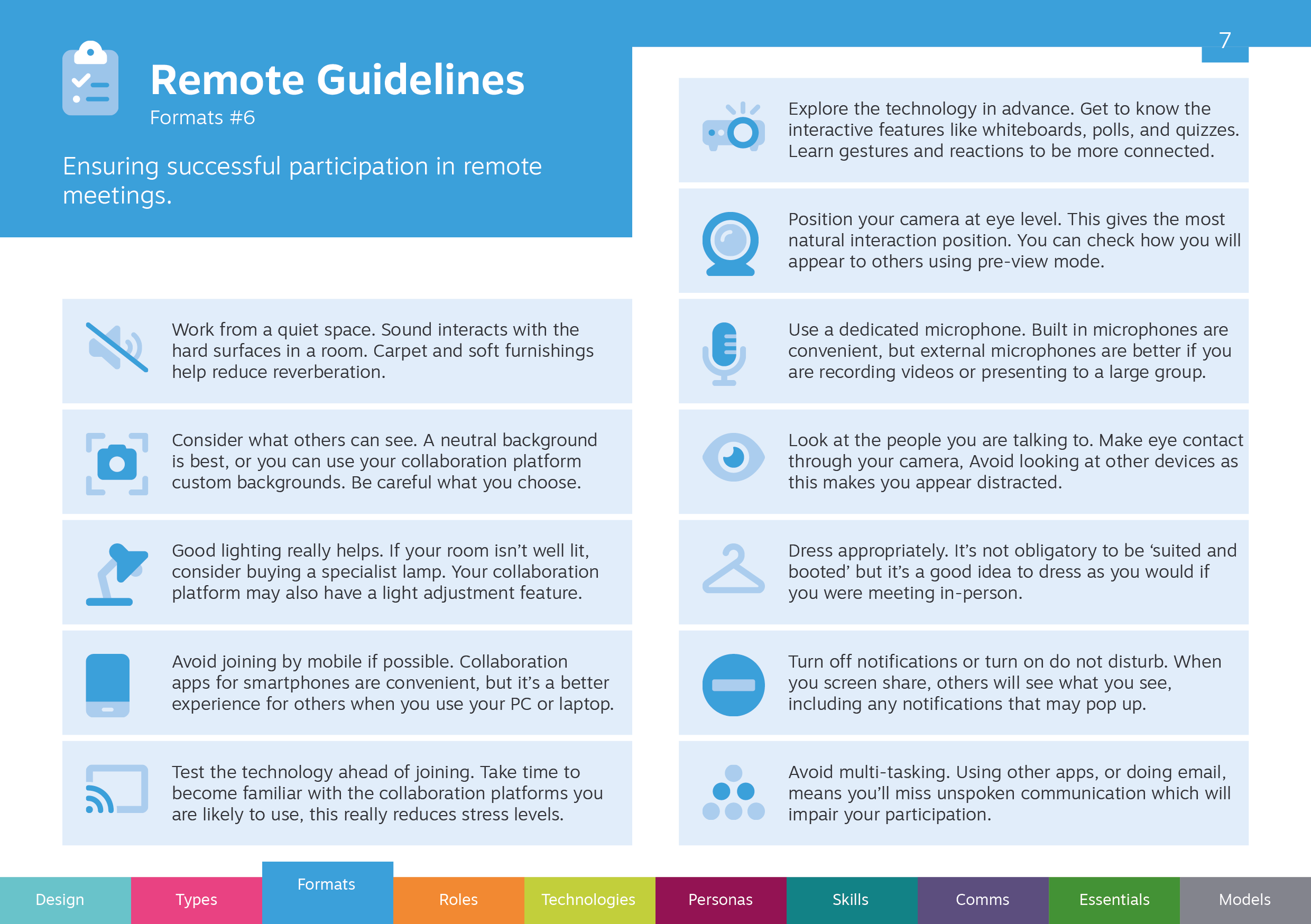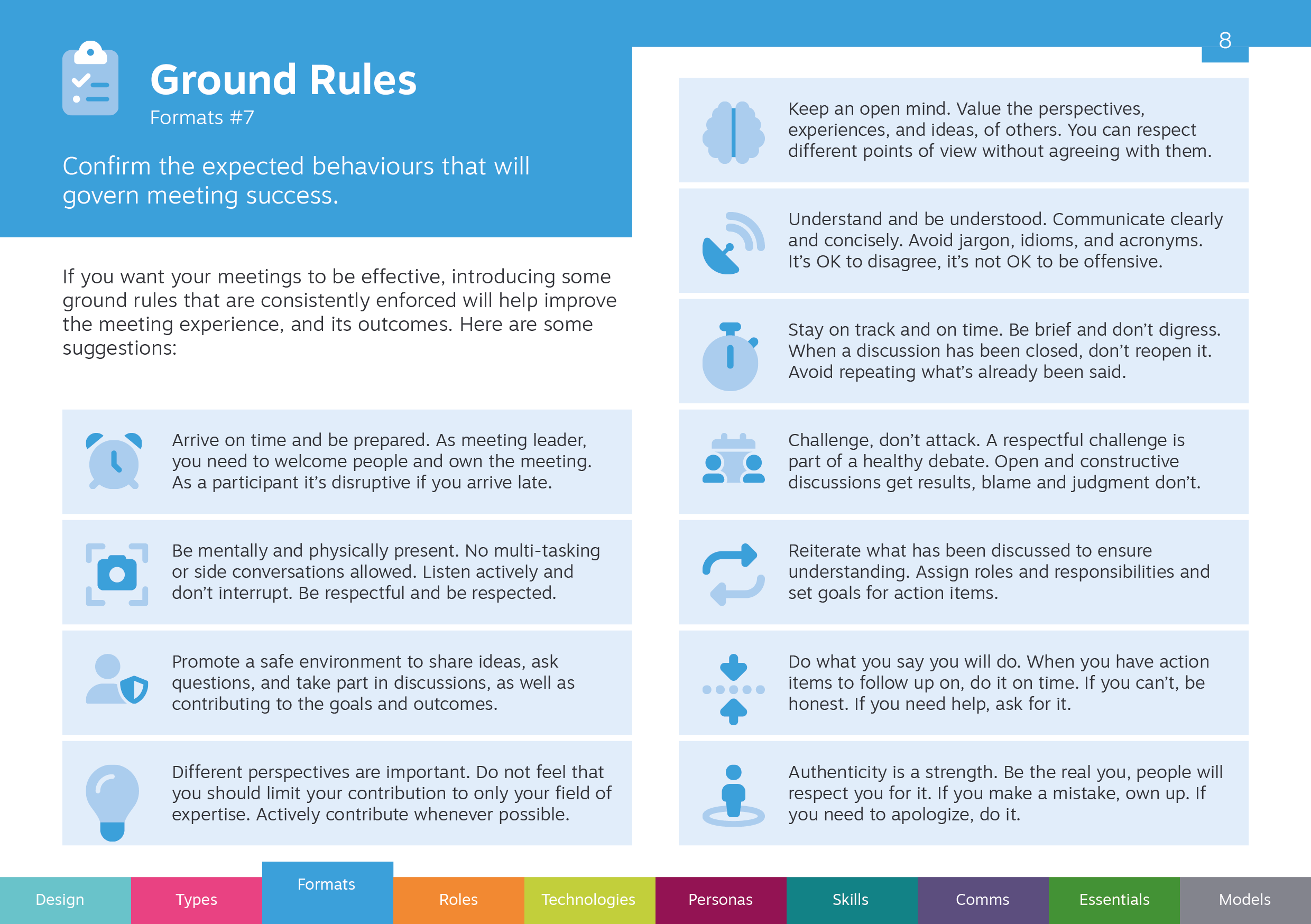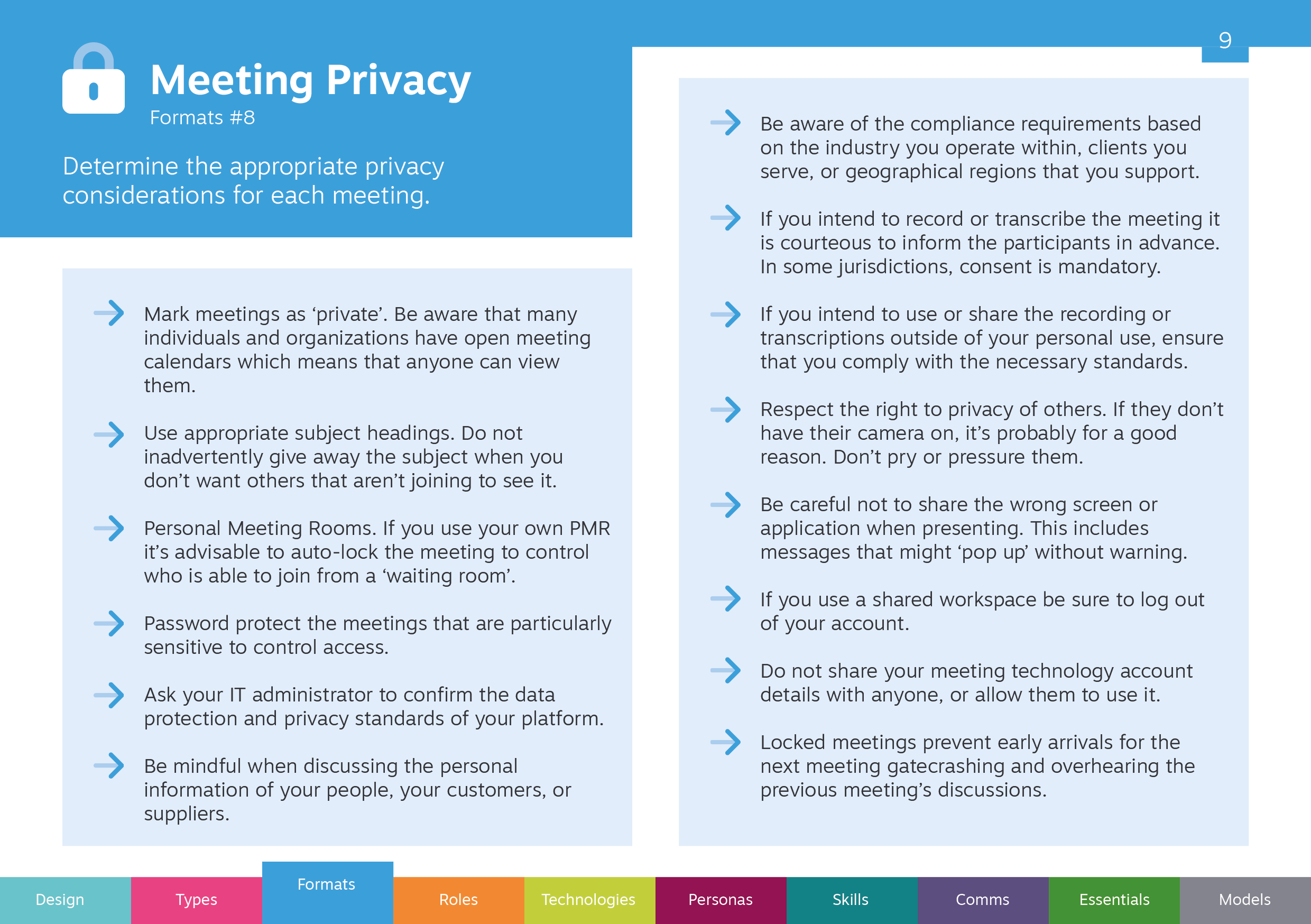Guidelines, ground rules, and best practices are important because they help meeting leaders, and participants, make better decisions that improve the meeting experiences for everyone involved. In turn, they positively impact the likelihood of the required outcomes being delivered.
They also make behaviour more consistent and provide participants with structures that help them to exercise personal judgment.
Surprisingly, or perhaps not, our research findings suggest that most organizations do not provide guidelines, ground rules, or best practices for meetings. Instead, they leave their staff to work out these things for themselves, leading to inconsistent approaches, poor experiences, and suboptimal outcomes.
Remote Guidelines
As the majority of meetings today are remote, let’s start with a set of Remote Guidelines. These have been authored to help anyone taking part in a remote meeting, irrespective of their meeting role, ensure the best experience for themselves, and all other participants. As a meeting leader, you may wish to attach the Remote Guidelines to your remote meeting invitations as a standard practice.

Ground Rules
It’s useful to have a consistent set of ground rules that apply to any Meeting Type and Meeting Format you choose to use. This consistency means the rules are more likely to be adopted as they are relevant to all meetings. They encourage appropriate behaviors from participants, whatever their role, across all meeting types and formats.
Again, if you are a meeting leader you may wish to attach the rules to your meeting invitations, and you could also have them in your meeting rooms.

Meeting Privacy
There is a lot to consider when thinking about meeting privacy. You may need to make invitations private, prevent people joining your meetings before you are ready when using a Personal Meeting Room, and password protect particularly sensitive meetings.
There may be compliance requirements that are industry, client, or geographically specific that you must be aware of, and abide by.
Recording and transcribing meeting discussions may also be prohibited in some industries, with some customers, or in certain jurisdictions. Elsewhere it may be mandatory to gain consent, without which you cannot record or transcribe. And even if it is a fairly simple process, it’s courteous to inform everyone, and gain their agreement, before you commence capturing the meeting.
Take a look at the meeting privacy considerations to help determine what’s appropriate for your meetings.
